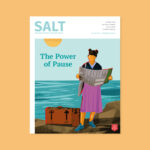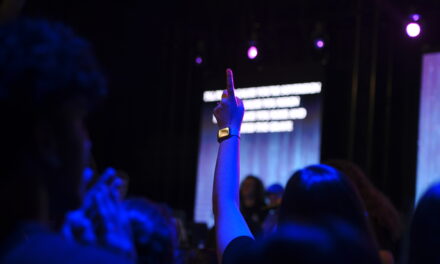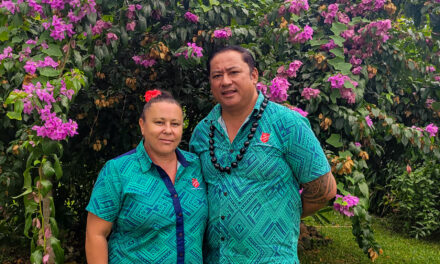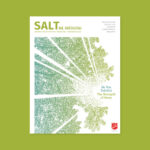
Leaning into a Legacy
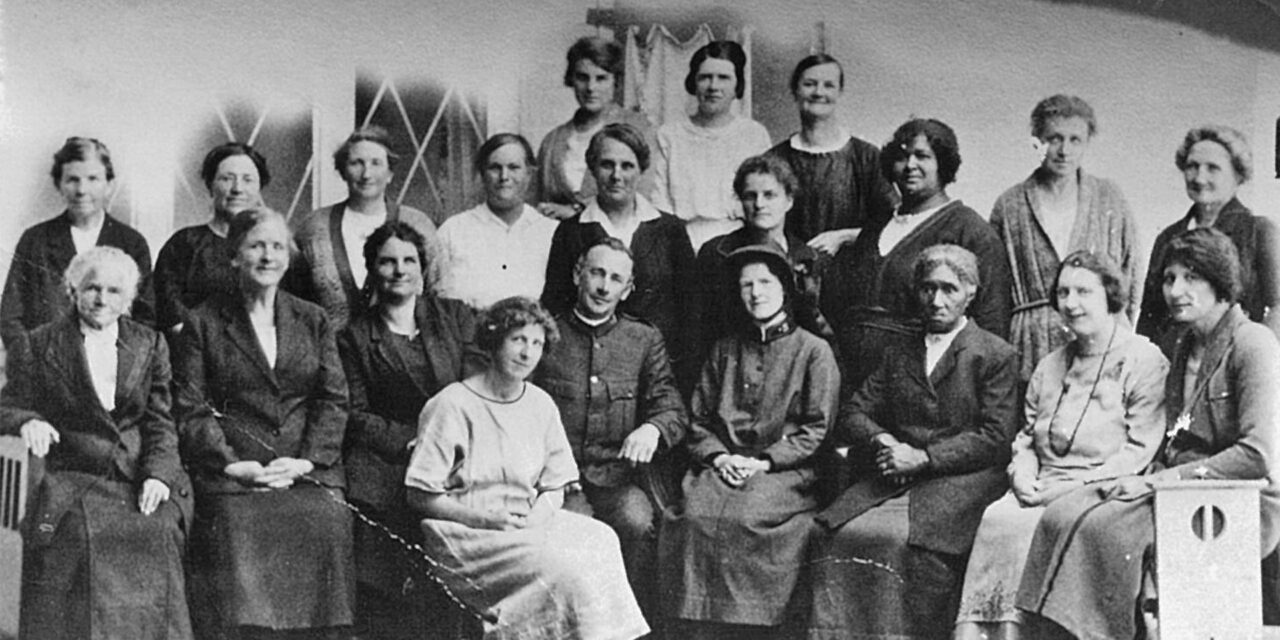
On May 23, Blenheim Corps Home League celebrates 100 years of ministry to women, by women. War Cry pauses to celebrate the origins and service achievements of Blenheim Home League, as well as the enduring care of a generation of women and the inspiration that legacy of care and service is to women today. The women who first gathered for home league in 1923 could barely have imagined the advances for women and opportunities available in 2023.
Home league got off to a bumpy start in New Zealand, but World War I changed everything. By 1916, there were 17 home league groups operating across the country, with women coming together to prepare care packages for soldiers serving overseas. After the war, attention turned to the home front with service focused on the ‘poor and needy’. It was during this period when Blenheim Home League came into being, likely motivated by the need generated after the great Blenheim flood of 1923 that ravaged the region.
Just a decade later in 1932, War Cry reported the efforts and activities of Blenheim Home League during the years of the Great Depression: ‘A very heavy demand is being made upon the home league at present, but the good service of the relief workers committee is easing the burden somewhat, and the co-operation of the two is doing good work locally to alleviate the sufferings of unemployment’.
A blooming success
Home league in New Zealand over this time grew at an extraordinary rate, with 500 members in 1919, ballooning to 3429 by 1938. By the 1940s, the growth and success of Salvation Army Home League globally saw the consolidation of purpose into the four pillars of worship, education, fellowship and service. These pillars remain unchanged and endure today.
The women of Blenheim were clearly faithful in fiercely upholding the four home league pillars as the 1984 ‘Historical Review’ produced for the corps centenary reveals of that time. Care packages of food and clothing were sent from Blenheim to Salvation Army missionaries serving in India, Rhodesia, Korea and Indonesia. Financial support was provided directly to missionaries in Singapore and India. Home league members visited local institutions to encourage inmates and deliver home baking. Hand-knitted garments were donated to the maternity home. Hundreds of jars of jam and marmalade were regularly distributed to pensioners, and fruit and tissues were delivered to hospital patients. In the days before Family Stores existed, Blenheim Home League women ran jumble sales to fundraise for items for the corps building and officers’ quarters.
The legacy of female leadership within Blenheim Corps is renowned, with the very first officers appointed in 1884 being two young women—Captain McMillan and Lieutenant Teasdale. Their example no doubt influenced the prominence of women in the corps, inspiring a generation and shaping the next.
A league of her own
Born in Blenheim in 1940 and promptly dedicated as a baby at the local Army, home league certainly shaped Jenny Hair’s life. Jenny recalls going along to home league with her mother after school when she was a child, and later as a teen. When Jenny married, and after the birth of her own children in the late 1960s, she returned to home league. ‘I had toddlers at the time—as a lot of us did,’ she explained. ‘Home league was much needed fellowship for us. The officer at that time used to look after the children of the home league women so we could meet.’
A natural leader herself, Jenny reflects on the contribution of women in the Blenheim Corps over the years. ‘Women have always had the opportunity to be leaders and speak from the platform. It’s just part of being a Sallie—women are always involved,’ said Jenny. She has been an active home league member for the past 57 years, as well as the home league secretary not once, but twice–with the current stint sitting at 15 years and counting—and Jenny is 83 years old!
‘It’s a calling, really. You don’t do it for yourself; you do it because you love God and you’re doing service for him. And in the meantime, you’re also doing service for others. It’s an important and fulfilling ministry. And to be fair, I couldn’t do it without the other committed leaders working alongside me. They play a vital role.’
Clearly Blenheim Home League has been instrumental for a generation of women, but there are only a handful of groups left around the territory, and while Jenny’s roll numbers about 35 members, like most groups, it is mainly comprised of older women—the average age of Blenheim members being around 75 years old.
‘How long home league will continue in the future is anyone’s guess … but it is hard—I’ve spoken at the funerals of 10 of our ladies. It’s awful for everyone, but we just keep on loving each other. My leaders are very caring; they call the ladies during the week to check in, which is important because some are lonely and isolated.’
Temperature rising
Despite being an aging group, Jenny and her ladies are evangelically focused. ‘There’s a block of flats nearby, and one lady came to home league through Community Ministries. She started coming and brought six other women from the flats along with her,’ reported Jenny.
Captain Emma Howan, corps officer at Blenheim Corps, testifies to the spiritual temperature of the group. ‘What they do comes out of what they believe. There’s a deep willingness within these women to share beyond the group with those who don’t yet have a spiritual connection with God,’ she said. ‘I’ve heard stories that it’s been a home league lady they’ve bumped into in the supermarket who’s sparked up a conversation with them and then invited them to home league. These women love God deeply and have a strong desire for others to know God too.’
Territorial Leader Commissioner Julie Campbell said, ‘I want to thank the women of Blenheim Home League for their service, and for being women of influence. Thank you for providing a place where women can come and find friendship—a place to belong and discover the love of Jesus. An oasis of encouragement, supporting women to go out into homes and communities with confidence and share God’s love by caring for others. I want to thank them for that legacy.’
For Jenny and the home league women, it’s the younger women who they are increasingly concerned about. ‘I really feel for women today, especially the ones who must work to help pay the mortgage and make the budget stretch—I really feel for them and I just hope they find the opportunity for Christian fellowship like our older ladies have,’ said Jenny.
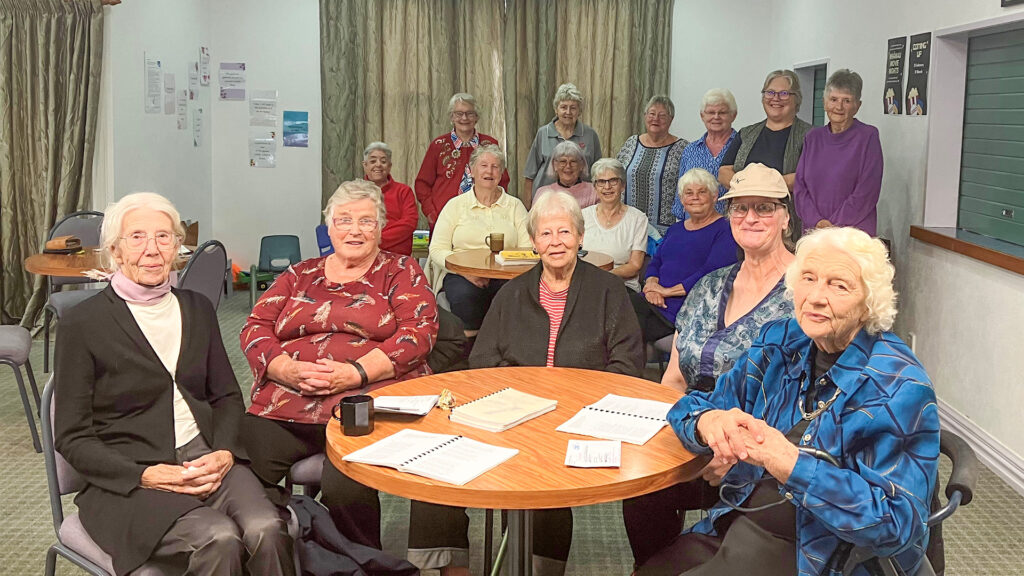
I’ll have what she’s having
That desire for deeper consistent connection with other women took root in the younger women of the corps during the first Covid-19 year. ‘Our home league women are so deeply connected to each other—supporting each other through the highs and lows of life. Our younger women want that too! This younger group are currently fundraising for a women’s retreat to think this through,’ explained Emma.
Julie said, ‘Women’s Ministries has had to evolve because there was a whole group of younger women we weren’t connecting with. The great legacy of home league is that it is our foundation—what we do today has come from it. We all need friendship, and the grounding and joy of knowing Jesus, but we also need to be well-informed on the issues of the day affecting women and be equipped to respond. So, we’ve been encouraged to look more broadly, think differently and re-imagine our ministry to women.’
Re-imagining
The New Zealand, Fiji, Tonga and Samoa Territory has been at the forefront of re-imagining ministry to women, by women, since the late 1990s. It was a proud and historic moment when Colonel June Kendrew was appointed as the very first Territorial Women’s Ministry Secretary globally, signalling a new era of innovation and change. The turn of the century heralded the beginnings of a twenty-first century reboot to reach a new generation of women. New initiatives were encouraged and events and conferences that raised awareness of the plight of women and girls globally sprang up calling for action—notably, ‘Her Freedom Song’ conferences, the brainchild of Captain Sammy Millar. And in 2018, the International Women’s Ministries Department launched a campaign to ‘re-imagine’ Women’s Ministries, calling for a renewed contextual commitment to advocating for and improving the lives of women and girls worldwide.
In this territory, Women’s Ministries moved into the Mission team space in 2018, to ensure the influence of women’s voices spans the breadth of the Army. With the mandate to ‘empower women, engage mission and ignite action’, women are doing just that—women like Te Rena Goodwin (Ngāti Kahu/Ngāpuhi Nui Tonu) of Manurewa Corps Plant.
Kaha wāhine kotahitanga—strong women in unity
Te Rena began her journey with The Salvation Army when she was living in transitional housing in Papakura—she now has her own place in Manurewa. ‘I was there with my kids for two years, and my whole attitude and life changed. My faith grew stronger, and I met lots of community people.’ Encouraged by Corps Officer Captain Steve Molen, Te Rena founded a community group called Kaha Wāhine Kotahitanga (Strong Women in Unity).
‘We started with women from the community—some from transitional housing. Women invite other women, and some come now that we are on social media. The women have struggles and are trying to find themselves; some of them know God and are walking with him. Others don’t but are curious and so we leave that door wide open for God and what he has for them. We’re all about unity and bringing women from all walks of life together—sharing together and building relationships while we craft together,’ Te Rena explained.
Growing up on the streets herself, Te Rena is passionate about helping others. ‘I didn’t have any help when I was younger and so I want to help and extend aroha (love) and awhi (embrace) to others—especially women.’
Te Rena runs a free community shed from her home for women only. ‘It’s a safe place for women to come and shop safely without someone looking over their shoulder—some are caught in domestic violence, so they need to feel safe. It’s a place to kōrero (talk) about what we do and if they need karakia (prayer), we karakia over them. We have a couple of strong prayer warriors in our group and we text prayer needs out so everyone gets praying,’ she explained.
Leaning into a spirit-led legacy
The values that drive Te Rena and the women of Kaha Wāhine Kotahitanga are: belonging and community connection, exploring spirituality, women empowering women, and creative expression. There’s a familiar echo to these values—a Spirit-led re-imagining of home league’s four pillars fit for twenty-first century Manurewa. Now there’s an inspiring history to connect with, and a legacy to lean into for a new generation of Salvation Army women.
Happy Anniversary Blenheim Home League! Rest assured that the future of women’s ministries is in safe hands!
Words Jules Badger
Blenheim Corps Home League Centenary
Fellowship Lunch: Saturday 20 May, 12.30pm
Worship Service:Sunday 21 May, 10.00am
Let us know you’re coming! ph: (03) 578 0862, email: [email protected]



